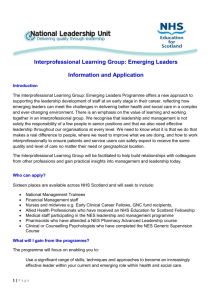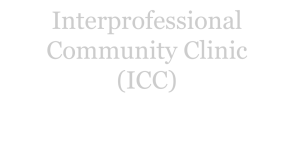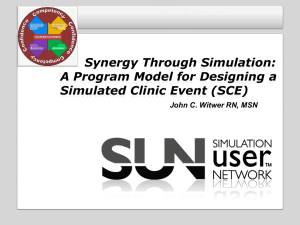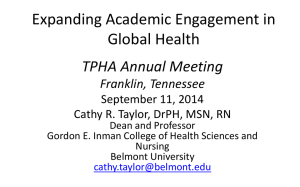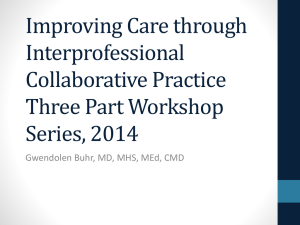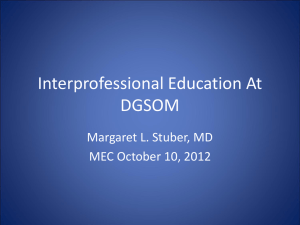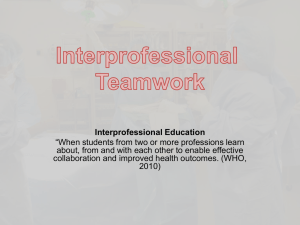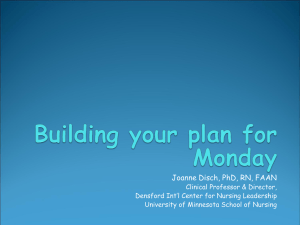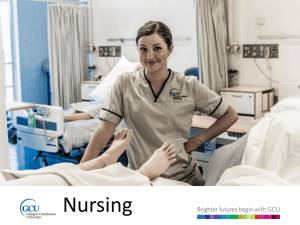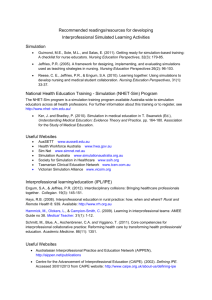Prof Peter Davey slides Dec 2013 - CMDN Blogs
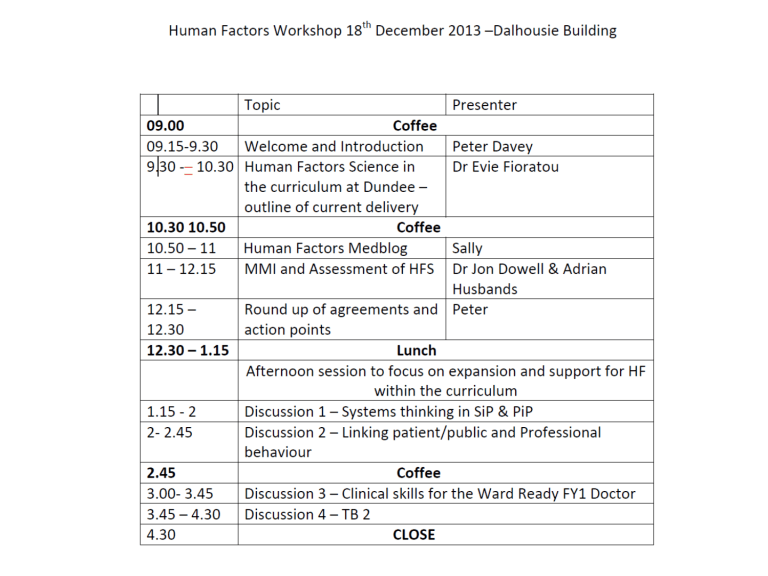
“Human Factors for a Safer Scotland”
National Conference
19 th March 2014
Beardmore Conference Centre Clydebank
Following on from the successful Human Factors workshops held 13-15
November 2013 a national conference is being planned.
There are a variety of HFs initiatives being developed and implemented in
Scotland. The conference will be an opportunity for you to share your work and experience as a presentation or poster.
Please help to make the day a success and share HFs knowledge and resources for the benefit of patients throughout our systems.
To help us plan the day, could you let us know if you would like to present either a talk or poster on 19 March with a short resume of your area of interest by January 10th 2014 to: philip.cachia@nes.scot.nhs.uk
Scottish
Improvement
Science
Collaborating Centre
University of Dundee/NHS
Tayside
University of West of
Scotland/NHS Lanarkshire
Consortium
MATERNAL
AND CHILD
OLDER
PEOPLE
FUTURE
TOPICS
SISSC approach
SAFETY AND
RELIABILITY
CARE AND
COMPASSION
REDUCING
IMPACT OF
INEQUALITIES
IMPROVING
HEALTH
AND WELL-
BEING
Human Factors Science:
Keeping Patients Safe
College of Medicine, Dentistry and Nursing
Interprofessional Learning
Learning objectives
Understand why all healthcare professionals need to apply human factors science
Identify the key clinical human factors skills
Develop an understanding of how you can improve them
College of Medicine, Dentistry and Nursing Interprofessional Learning
Clinical Human Factors
Enhancing clinical performance through an understanding of the effects of teamwork, tasks, equipment, workspace, culture, organisation on human behaviour and abilities, and application of that knowledge in clinical settings.
Clinical Human Factors Group ( http://www.chfg.org/ )
College of Medicine, Dentistry and Nursing Interprofessional Learning
Human Factors Approach
College of Medicine, Dentistry and Nursing Interprofessional Learning
Swiss Cheese Model
College of Medicine, Dentistry and Nursing Interprofessional Learning
Swiss Cheese Model
Close the holes or add a layer
Training in
Clinical
Human
Factors
Skills
College of Medicine, Dentistry and Nursing Interprofessional Learning
Key Steps in Decision Making
(DODAR)
Step
D - Diagnosis
O -Options
Explanation
What is the problem?
What are the options?
D - Decision What are we going to do?
A
– Assign tasks
Who does what?
R - Review What happened/ what are we doing about it?
College of Medicine, Dentistry and Nursing Interprofessional Learning
Skills for Health Report 2009
Junior doctors in the NHS: Preparing Medical Students for
Employment and Post-graduate Training
The main areas which cause difficulties are:
• Lack of confidence and competence in clinical-decision making and prescribing in practical situations.
• Lack of understanding of the NHS and how it works.
• Standards of professionalism which are below those generally expected of NHS employees.
Skills for Health Report 2009
Junior doctors in the NHS: Preparing Medical Students for
Employment and Post-graduate Training
• Nearly all respondents talked about junior doctors not having had enough experience in clinical situations and so not having the confidence and competence needed to make decisions about the clinical management of patients.
Discussion Sessions
1 Interprofessional learning
2 HF Concordat/ NES
3 Skills for Health gap analysis
4 HF teaching in TB2
